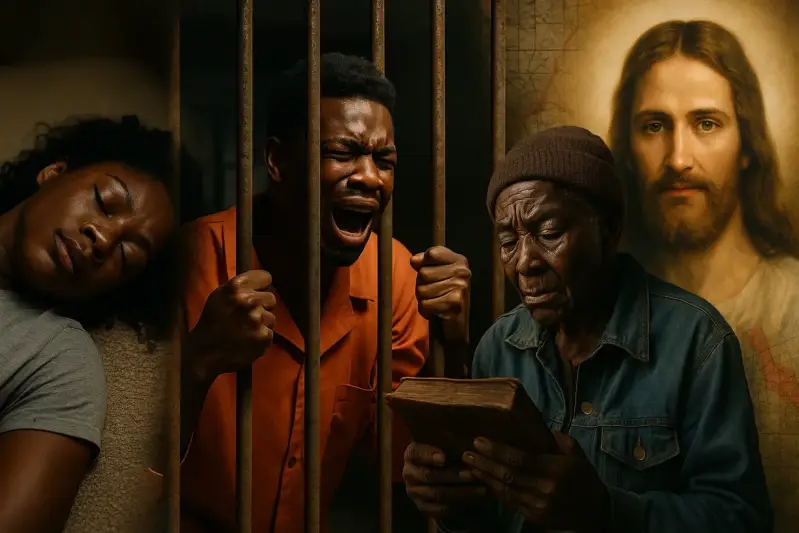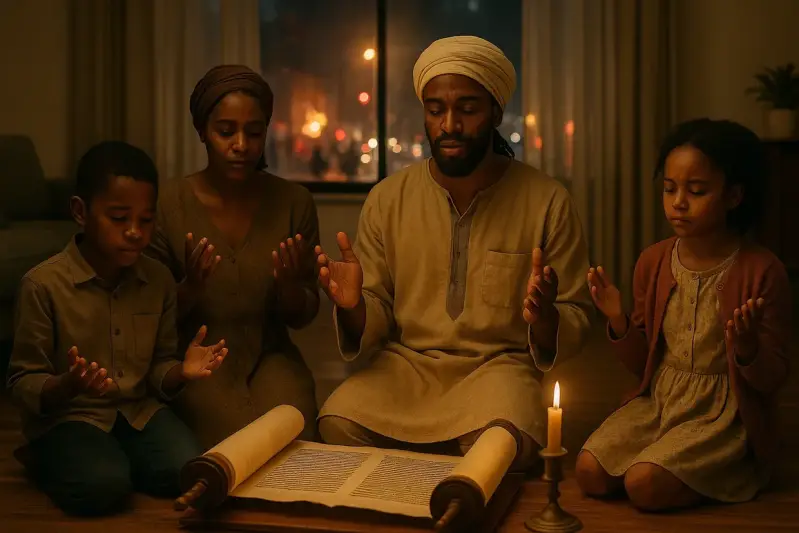"You will become a 'Byword'..."

KEY TRUTHS
“Ibriy”: The Covenant Name
The name “Ibriy” (Hebrew) is not merely an ethnic label but a profound covenant identifier, signifying our unique relationship with YaHU’aH and our heritage tracing back to Eber (or Heber), the ancestor from whom the name is derived (Barashiyth 11:16-17). Its root, ‘abar, means "to cross over," powerfully evoking Abraham's journey away from paganism towards faith in the one true AL’uah and our subsequent crossing over into covenant relationship through the Torah. When the scripture first identifies Abram as "Abram the Ibriy" (Barashiyth 14:13), it establishes this name as foundational to our identity. This identity was inherited by his descendants, particularly through key tribes like Yahudah and Lewi who maintained prominent roles in covenant history. The divine self-identification in Shamuth 3:18, where YaHU’aH instructs Moshah to tell Pharaoh, "YaHU’aH AL’uah of the Ibriym hath met with us," explicitly links this name to our AL’uah and our collective identity as His people. This is reflected culturally in the persistent monotheism found among groups like the Lemba (identified with Lewi). The bold declaration of Yonah 1:9, "I am an Ibriy; and I fear YaHU’aH, the AL’uah of heaven," encapsulates the core of this identity – belonging to YaHU’aH and adhering to His ways, a sentiment echoed in the historical rejection of paganism by many Bantu groups identified as Yashar’al.
Despite centuries of oppression and the forced imposition of derogatory bywords designed to strip us of this name, the Ibriy identity has been preserved through cultural practices like Igbo circumcision ("Omenala") and the coded language of spirituals ("Wade in the Water," symbolizing passage and covenant). Apocryphal texts like the Testament of Yahudah 4:1-2, acknowledging the scattering but affirming the promise of gathering, reinforce the enduring nature of this covenant identity: "We were scattered… but the AL’uah will gather us."
The Prophetic Byword and Ongoing Affliction
“Nigger”
The horrific term “Nigger,” forced upon the scattered Yashar’alites, is understood as more than a racial slur. It's a tool of dehumanization and a direct fulfillment of specific scriptural curses. This byword was designed to strip them of their true Ibriy identity and sacred heritage during their brutal captivity, profoundly highlighting the prophetic nature of their suffering and the deliberate erasure of their lineage through this imposed label.
“Negro”
The document posits that the 1934 Webster dictionary's description of "Negro" people aligns with biblical depictions of the Anointed One, indicating a hidden prophetic identity. It argues that Bantu people, particularly the Lemba, are the true descendants of the covenant, preserving ancient Hebrew practices in Southern Africa, which is identified as the actual Promised Land. This reawakening of identity, based on features once mocked, exposes a worldwide deception by a false Mashiyach.
End-Time Trials
The suffering of the twelve tribes of Yashar'al extended beyond the formal end of chattel slavery, transforming into various modern forms of oppression. This includes systemic racism, economic exploitation through practices like redlining, and the spiritual deception of false identities, all predominantly experienced within their lands of captivity, particularly in America. These ongoing afflictions serve as a painful, yet clear, fulfillment of end-time prophecies, confirming their identity as a people enduring a prolonged period of judgment and captivity.

Inner Resurgence
A return is happening—not outwardly, but within. This is the quiet fire of conviction, the awakening of identity, and the pull back to covenant truth. Inner Resurgence is the stirring of the Ruach calling Yashar’al to remember, repent, and rise from within.

